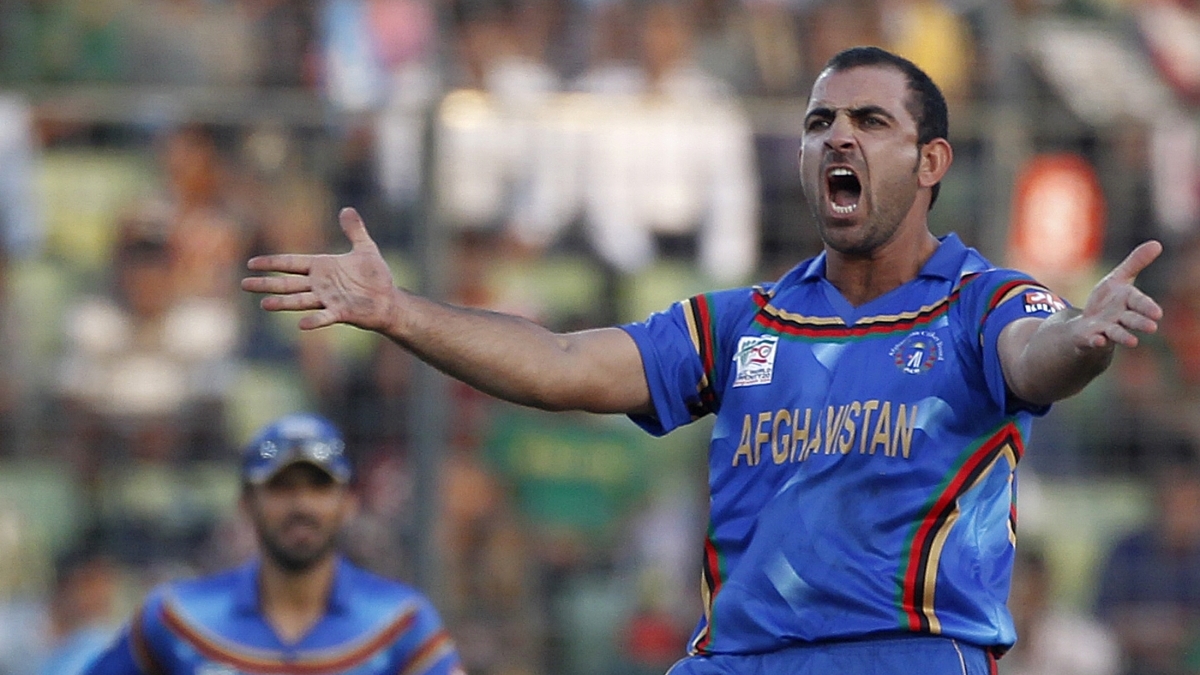Lavalette column: Afghanistan eye their moment of history

Six years ago, I spent time around the Afghanistan cricket team during their short acclimatising tour of Perth ahead of the 2015 World Cup.
It was a chance for players used to the dustbowls of the subcontinent to experience the fast and furious WACA pitch a few months before they played eventual World Cup winners Australia at the ground.
The players I talked to all seemingly had a lump in their throat when talking about the iconic WACA ground. There was some trepidation about the prospect of facing Australia’s fiery quicks on a ground steeped with so much aura. I got the sense they were a little overawed about what was ahead but the players had an innate belief that it was a stepping stone to something special.
“We truly believe our destiny is to become a great cricket nation,” the team’s veteran all-rounder Samiullah Shenwari told me at the time.
Much has changed in the six years since. After stealing the show at the 2015 World Cup with a lively performance where they emerged as fan favourites, Afghanistan received Full Membership in 2017. They’ve played four Tests and won two, including a highly impressive beating of Bangladesh in Chittagong 12 months ago.
But it will be an entirely different challenge in Perth against Australia. With the Covid-19 pandemic playing havoc, it appeared the historic one-off Test was going to be dispensable for an under-pressure Cricket Australia (CA) with their sights set on maximising the money-spinning India tour.
Over the years, CA have not made much effort in developing the smaller cricket nations. Underlining this, Bangladesh and Zimbabwe have not played Tests in Australia for more than 15 years.
It’s about time CA looked beyond merely playing the power nations but the governing body does deserve credit for salvaging this fixture in these uncertain times. Although Afghanistan’s request to prolong the tour – they are set to arrive in early November due to Australia’s 14-day quarantine rules for incoming travellers – with a proposed T20 series was knocked back.
The Test is likely to be played from December 7-11 although CA want it as a day-nighter but Afghanistan don’t. Pink ball pioneers Australia are unbeaten from seven day-night matches, while Afghanistan have never played in one and are likely to have just one warm-up match beforehand.
Still, it will be a momentous occasion for Afghanistan who just six years ago could only have dreamed of playing a Test in Perth. It will be played at the magnificent 60,000-seat Perth Stadium which has been able to replicate the WACA’s famed pace and bounce over two previous Tests.
Afghanistan will add a slew of young pacemen in a squad of 17 or 18. Much like Pakistan, they’ve been known for producing talented quicks with a bout of eccentricity. There’s a reason Shapoor Zadran, who has long, unkempt hair and a ludicrous run-up, and Hamid Hassan – celebrator of wickets with cartwheels became cult figures.
“We know about the pitch and we will be trying to prepare the players for it,” Afghanistan Cricket Board (ACB) acting chief executive Nazeem Jaar Abdulrahimzai told me. “It won’t be easy conditions but we will try our best and believe we can win.”
Afghanistan’s first ever Test was against India but they’ve yet to play Australia or England. Playing cricket’s traditional teams in totally foreign conditions for them will further Afghanistan’s development and provide invaluable exposure.
“It is a historic moment to play Australia because they are a big cricket nation and we know how strong they are,” Abdulrahimzai said. “But we will be prepared mentally and physically to play them.”
It will be the latest chapter in a fairyale perhaps unparalleled in sports. The ACB was only formed in 1995 and the team was initially built from players returning home from refugee camps in Pakistan.
Afghanistan gained Affiliate membership of the International Cricket Council in 2001 just a year after the ban on the sport was lifted by the Taliban. Their innate talent was obvious and Afghanistan won their first ever World Cup match in 2015 against Scotland in trademark entertaining fashion. They’ve been consistently competitive across the formats ever since.
But it hasn’t all been rosy. Less than two months before last year’s World Cup, Asghar Afghan was unceremoniously dumped as skipper to trigger a disappointing campaign for Afghanistan.
Security issues in the war-torn country mean that Afghanistan don’t play matches at home and are instead based in India and UAE. The volatility has festered inside Afghanistan cricket with internal politicking a bane in the administration.
Exacerbated by the financial tumult from Covid-19, the ACB has been forced into budget restraints and recently parted ways with respected Englishman Andy Moles, who was the technical director and chairman of the selection panel.
Hopefully the associated ravages from the pandemic doesn’t set Afghanistan cricket back. They have the potential to be highly watchable on-field and a genuine power to add much needed depth in world cricket.
It’s been a swift rise since they were starry-eyed in Perth. But the next six years or so could define whether Afghanistan’s dreams can be truly realised.
TRISTAN LAVALETTE